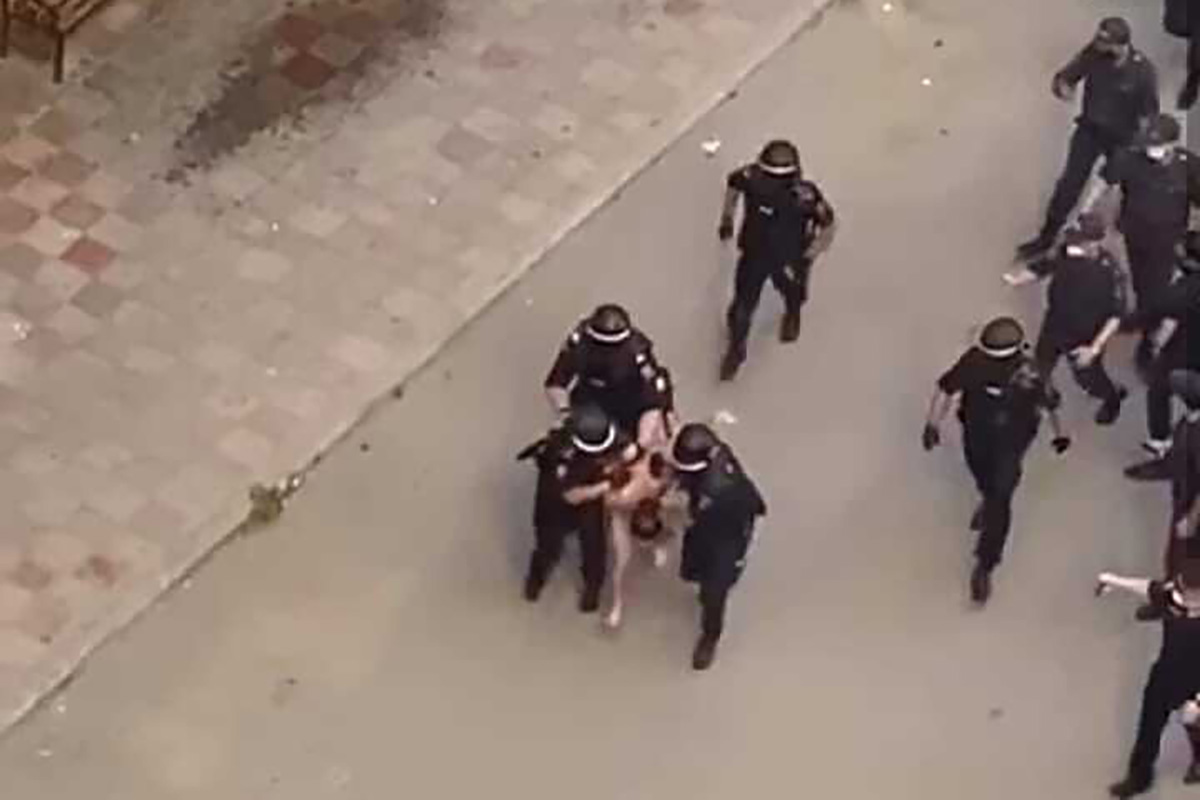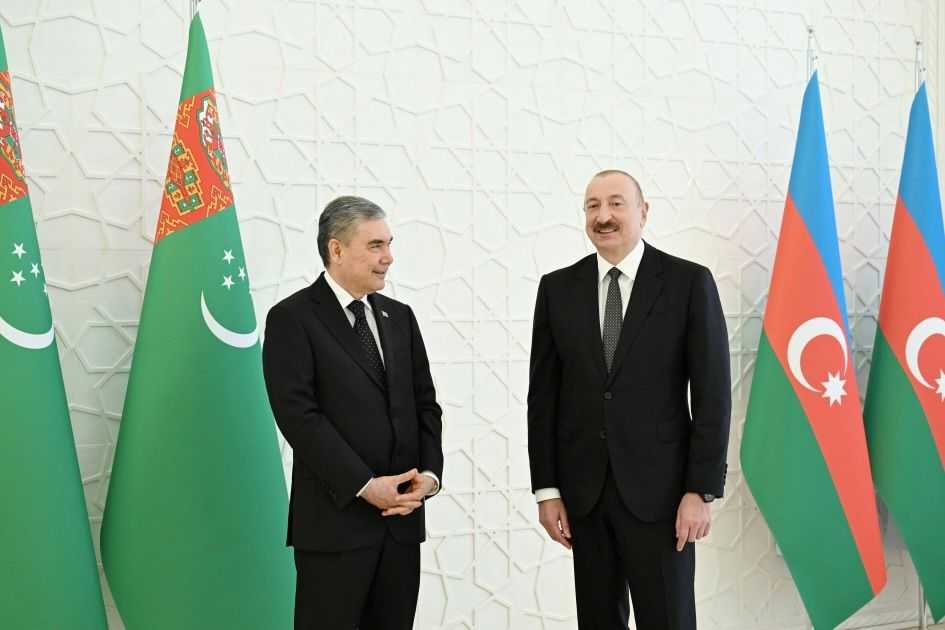
Azerbaijan’s response to the pandemic has been heavy-handed, authoritarian, and ineffectual. It has served the interests of its ruling elites to the detriment of ordinary citizens and its embattled opposition.
As the COVID-19 pandemic has continued to ravage the world, a host of authoritarian countries have used the virus as a cover to tighten control over civil society, attack journalists, and repress domestic opposition. Azerbaijan has followed in the footsteps first made by fellow autocrats in countries like Jordan, Thailand, and Hungary.
That the country would take such an approach was made clear at the very outset of the pandemic. In his annual Novruz address on 19 March (at the time, the total number of confirmed cases was just 34) President Ilham Aliyev warned of ‘traitors’ and representatives of a ‘fifth column’ spreading rumours and provocations who he said would not be tolerated.
‘It is possible that a state of emergency may be declared at some point’, he said. ‘In this case, the isolation of representatives of the fifth column will become a historical necessity.’
Azerbaijan never did formally declare a state of emergency, but instead introduced a ‘special quarantine regime’ on 23 March, which suspended civil liberties, freedom of movement, and other rights to such a degree that its difference from a state of emergency was in name only.
Meanwhile, the pandemic has not been contained. As of publication, Azerbaijan has registered over almost 14,000 cases and 167 deaths. Despite a brief lull in the number of infections, in the past month, the virus has come roaring back.
Image protection
Despite the global severity of the pandemic, the Azerbaijani authorities have prioritised their reputation and their image even if this grossly endangered the public.
Azerbaijan was the last country to shut its borders with neighbouring Iran at a time when its southern neighbour was already reporting high numbers of infected patients. It was not until other countries started reporting cases of COVID-19 among people arriving from Azerbaijan did officials finally admit to having the virus within its borders.
Perhaps the most egregious example of this took place on 22 February when Belarus discovered that an Iranian student, who had arrived in the country had COVID-19. He had travelled to Belarus from Azerbaijan. This was a full week before Azerbaijan officially confirmed its first case, on 28 February.
Once it became undeniable that Azerbaijan had cases of the virus, contaminated arrivals became a new image issue, and the state of medical infrastructure returned to the government’s agenda.
On 27 February, a group of patients shared videos of a hospital where they were placed after crossing the border with Iran. They showed beds without bedsheets, toilets without soap, and taps without running water.
Once the videos began to spread widely, the head of the hospital was dismissed. Soon enough, there were even more videos which revealed the ramshackle conditions throughout hospitals in the country’s southern regions where people arriving from Iran were quarantined.
Questions about misspent funds began to be raised, but the pandemic has proven to be an excellent cover to silence those who would air criticism of the government’s response to it.
Crackdown
Since the special quarantine regime was declared, scores of journalists have been harassed for so-called ‘quarantine violations’. According to the Council of Europe, at least 11 journalists were placed under arrest.
The government has also taken smaller, more insidious anti-democratic measures, with some journalists reporting that access to public information has been sharply limited during the quarantine regime.
On 20 March, Azerbaijani MP Ganira Pashayeva proposed setting up a social media monitoring unit that would identify, track, and punish those who shared ‘false’ information on social media.
The unit was never officially set up, but, in the following months, several prominent online critics were sentenced to administrative detention for making posts critical of the government’s handling of COVID-19.
This month, yet another decision signalled a further crackdown against independent media on a larger scale, including limited access to social media platforms.
On 5 June, the Plenum of the Supreme Court sent the cases of the five media platforms blocked for access since 2017 to the Baku Court of Appeal. The purpose of this, according to some experts, is to also block the websites’ materials on social media platforms.
The five media platforms, Meydan TV, Azadliq Radio, Turan TV, Azerbaycan Saadi, and the Azadliq newspaper, have been blocked by Azerbaijani internet providers on the orders of the Ministry of Communication.
The authorities justified the censorship by stating that the websites endangered the national security of the country.
Dragged out of their homes
On the weekend of 6–7 June, a raid by riot police revealed the extent to which the authorities felt comfortable imposing force upon their own citizens.
After a total lockdown was declared in the cities of Baku, Ganja, Sumgayit, and Lenkoran, as well as the Absheron district, residents who were suspected of leaving their homes were pursued with reckless determination.
Videos of police entering homes of civilians by force and dragging people out without a warrant were circulated online and resulted in wide criticism of measures in place and the severity of police force.
According to the Ministry of the Interior, 11 people were arrested and sentenced to administrative detention ranging from 15 days to two months.

Karim Suleymanov, one of the men arrested, claimed that he was beaten for nearly five hours by dozens of different police officers after being arrested.
Attacks on political parties have also intensified during the quarantine regime.
Since 24 March, at least 30 members of the opposition Popular Front Party have been arrested, while Tofig Yagublu, a member of the opposition Musavat Party and former political prisoner was arrested in what appeared to be a fabricated car accident.
There have been many other arrests and incidents of government harassment, though sadly, they are too numerous to list.
Another slush fund in the making?
Not surprisingly, Azerbaijan’s response to COVID-19 has been met with concern and outright condemnation from around the world. Organisations as diverse as the OSCE, PACE, Reporters Without Borders, and many others have called on the government to change course.
But let’s face it, when has the government of Azerbaijan taken any of the international criticism as a sign that things much change? Not once.
Not even when the news of a secret slush fund worth some $2.8 billion made the international news rounds.
Hailed as one of the biggest collaborative journalism investigations, it was revealed how Azerbaijan’s ruling elite laundered funds through shell companies set up in the UK.
The authorities refuted the claims immediately. There were no courts, no accountability — in other words, absolute impunity. The business as usual model followed on.
Three years after Azerbaijani laundromat revelations, another fund is being set up, this time, without secrets and following a real presidential decree.
The Coronavirus Response Fund has been set up with the intention ‘to prevent the spread of the coronavirus infection’ and ‘provide financial assistance to the countermeasures’. President Ilham Aliyev and his wife, First Vice President, Mehriban Aliyeva, have generously donated their annual salaries of ₼130,000 ($76,000) and ₼100,000 ($60,000) respectively.
The President has also allocated ₼20 million ($1.2 million) from the President’s Contingency Fund. The detailed breakdown of recent donations shows payments from large and small businesses, government institutions, and individuals ‘reflecting corporate social responsibility and state-citizen unity’.
Unlike the news of the secret slush fund that got no coverage in the country’s media at the time, the news of this fund received more attention than the state of the pandemic inside the country.
As of 11 June, the fund has raised nearly ₼114 million ($60 million). And while this money was initially aimed at remunerating medical workers and improving the infrastructure and technical capacity of medical institutions, not a penny has yet been spent.
Speaking at a press conference on 9 June, Ibrahim Mammadov, spokesperson for the Cabinet of Ministers, said, there was no need for the funds. Azerbaijani authorities have given no further details about the future of the fund.
But this begs a number of questions — how does a country boasting of being the wealthiest in the region suddenly run out of cash for basic medical services? Or, if indeed there is no gold left in its coffers, why then did the government donate $5 million to the WHO and to Iran?
Why did they desperately need money before but now have no need for it?
Taking into account how poorly the authorities have managed the country’s economy in the past, perhaps their personal piggy banks are in need of replenishing and this pandemic, and this fund, is just one more way to help refill their pockets.
It would be only one more pebble upon a mountain of utter mismanagement for which the Azerbaijani people have had to pay for. Unfortunately, during this pandemic, they have to pay not only with their hard-earned taxes, but also with their lives.






